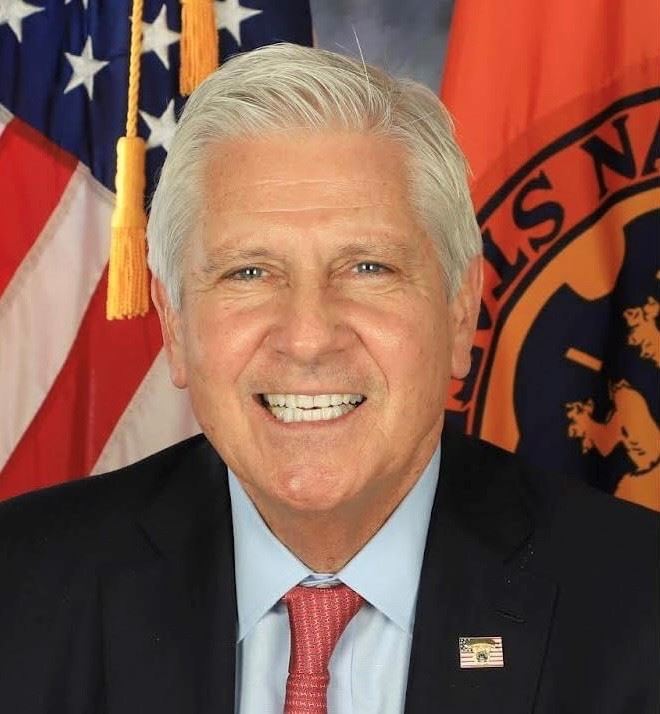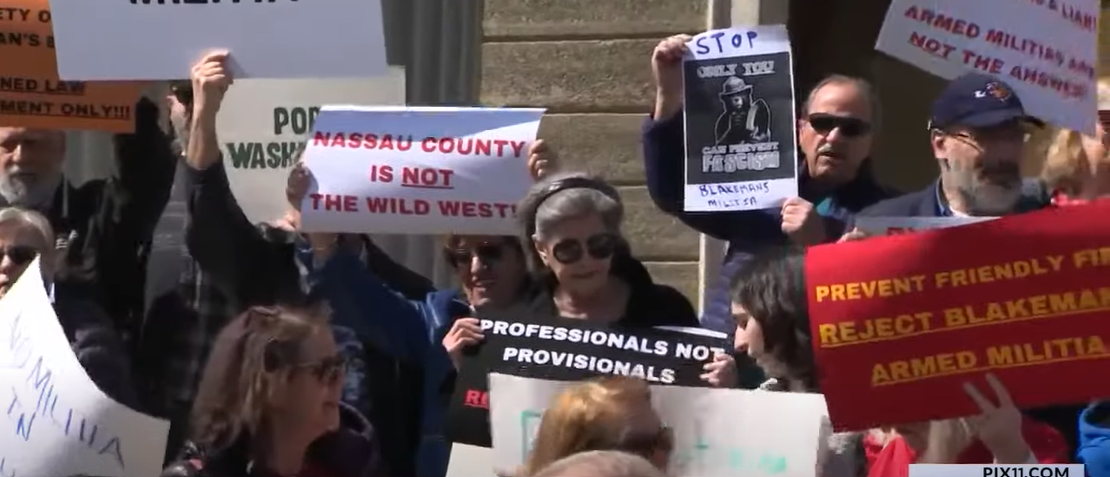In a move that has sparked considerable debate, Nassau County has passed legislation that bans the wearing of masks in public spaces with certain exemptions. This new law, known as the Mask Transparency Act, was approved by the Nassau County Legislature and is aimed at preventing individuals from concealing their identity, particularly during protests or other public gatherings.
New York Gov. Kathy Hochul and New York City Mayor Eric Adams have previously voiced support for similar bills but their ban would apply only on the subway.
Nassau County Executive Bruce Blakeman has been described by The New York Times as “a Republican who has allied himself with former President Donald J. Trump and thrust himself into the culture wars.”
The mask ban is another indication of the increasingly rightward political lean of the New York suburbs. Blakeman was involved in another highly controversial campaign to recruit “an unsanctioned civilian militia in Nassau County” this past spring.
In March, Blakeman called for residents with gun permits and an interest in becoming “provisional emergency special deputy sheriffs.” The posting called the initiative a strategy to assist in the “protection of human life and property during an emergency such as a hurricane or blackout ,” but Blakeman later added, “a riot”.

The New York Times has questioned why “this well-to-do Long Island county, which is one of the country’s safest, protected by one of the largest police departments” should need additional protection by armed “deputized” citizens. Blakeman’s opponent, Delia DeRiggi-Whitton, the Democratic minority leader of the County Legislature has stated, “it’s fear-mongering, and it’s very damaging to people,” adding, “This is not the Wild West.” Despite protests and strong opposition, Blakeman is in the process of training the volunteers and claims to have more than 25 ready for action if necessary.
Nassau and Suffolk counties were long controlled by the Republican Party. Republican presidential candidates won both counties from 1900 until 1988. However, in 1992, Nassau voted Democratic and has done so in every election since, although sometimes by fairly close margins. Based on recent legislation, it looks like the pendulum might be swinging back in the other direction.
Now comes the mask ban. The law stipulates that individuals over the age of 16 are prohibited from wearing masks on public property unless they are doing so for health reasons, or due to religious or cultural practices. The decision has been met with mixed reactions from the public and has once again raised concerns regarding civil liberties and the right to privacy in Nassau County.
Supporters of the Mask Transparency Act argue that it is a necessary step to ensure public safety and prevent criminal activities that may be facilitated by the anonymity masks provide. They point to rising “retail crime”—robberies and mass shoplifting—and recent antisemitic incidents, suggesting that the ability to hide one’s identity contributes to the problem.
On the other hand, critics, including the New York Civil Liberties Union, have expressed concerns that the ban could infringe upon free speech rights and lead to selective enforcement. They argue that it is precisely the anonymity provided by the masks that makes it possible for individuals to express unpopular political opinions. What’s more, making anonymous protest illegal could inhibit political action, a foundational right of the American citizen.

The Mask Transparency Act makes it a misdemeanor to wear a facial covering to hide one’s identity in public, punishable by up to a year in jail and a $1,000 fine. It includes exemptions for masks worn for health, safety, religious or cultural purposes, or for the peaceful celebration of a holiday or similar event where masks are traditionally worn. The question arises, however, as to how an officer would determine on the spot that there is a valid exemption in an individual case. Would the mask-wearing people be arrested first and have to defend their right to wear it?
Nassau County Police Commissioner Patrick Ryder has clarified that the intent is not to arrest individuals merely for wearing a mask, but to engage and understand the purpose behind it.
The public is split on the new legislation. “To be honest with you, I feel like if you aren’t feeling well, you should put your mask on, right? I feel it’s sort of not fair,” Nassau County resident Nancy Wellbrock said, but alluding to the prevention of retail crime, she adds, “But then shopkeepers want to you have the mask off.”












